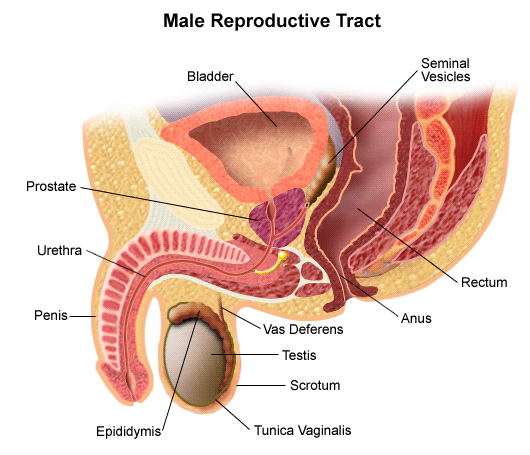What is the prostate?
- The prostate is a gland located at the base of the bladder. It surrounds the urethra and sits in front of the rectum. Urine passes through the prostatic urethra from the bladder. The prostate produces fluid to aid the passage of, and nourish, sperm.

What is PSA?
- Prostate Specific Antigen (PSA) is a protein produced by prostate cells. A PSA test measures the amount of PSA in your blood. Both normal and abnormal prostate cells produce PSA.
What are the causes of elevated PSA?
- While high PSA levels can be a sign of prostate cancer, a number of conditions other than prostate cancer can cause PSA levels to rise.
These conditions include:
- Benign enlargement of the prostate
- Urinary tract infection
- Prostate inflammation
- Recent prostate or bladder surgery
- Urinary catheter insertion
- Pressure on prostate such as prostate examination, long bike riding, recent ejaculation
- Prostate trauma from surgery, biopsy or catheterisation
- Spicy food, caffeine-containing drinks
What other tests do I need if my PSA is elevated?
- A repeat PSA testing is usually performed to make sure it is not falsely elevated. Then your doctor may perform other tests to see if the PSA rise is due to prostate cancer or other causes. These may include digital rectal examination to assess if there is any prostate nodule, urine culture to test for infection, ultrasound to estimate prostate size, or an MRI scan.
What is the role of an MRI scan?
- The magnetic resonance imaging (MRI) scan of the prostate allows the visualisation of the entire prostate.
- MRI of the prostate improves the diagnostic accuracy of prostate cancer. MRI of the prostate can accurately detect clinically significant prostate cancer in 80-90% of cases.
- However, an MRI scan does not replace prostate biopsy; a biopsy is still required to definitively confirm the prostate cancer in the majority of cases. An MRI scan helps improve prostate biopsy accuracy by allowing targeting of the abnormal area (MRI fusion biopsy).
- MRI of the prostate also gives information about the exact location of the existing cancer and whether the prostate cancer is in close proximity to the nerves that supplies erections which run close to the prostate. This is important for the surgeon to decide if it is safe to peel the nerves off the prostate gland during prostate cancer surgery to help preserve erectile function.
Disclaimer: The information on this website is provided for your general information and is not a substitute for the specific advice of your treating doctor.

